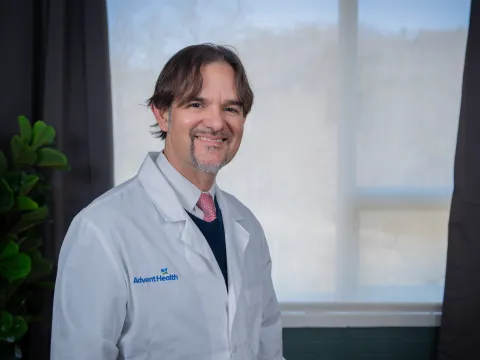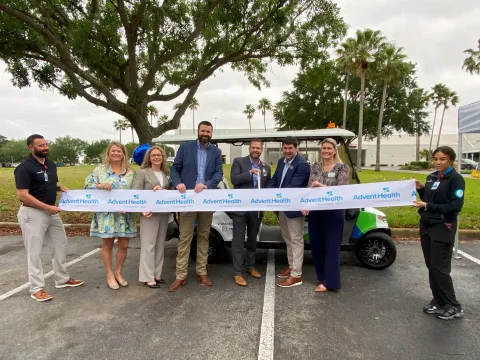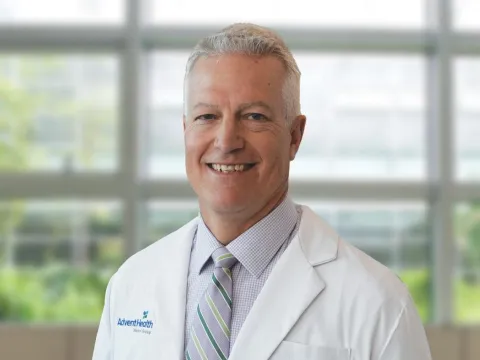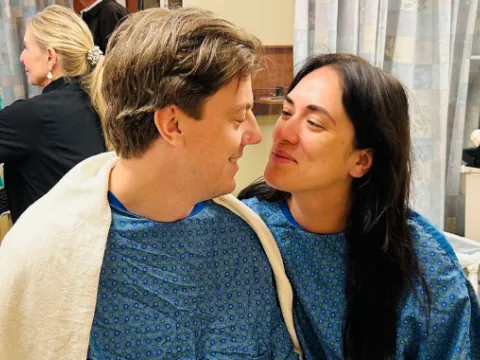- AdventHealth Foundation Central Florida
Type 1 diabetes (T1D) is a complex condition that affects individuals in various ways. For those newly diagnosed, understanding the facts about T1D is crucial for effective management. With a wealth of information available, it can be challenging to discern accurate information from common misconceptions. Let's debunk some of the most prevalent myths about T1D and explore the science behind the facts.
Myth 1: No Family History, No Diabetes
While a family history of diabetes can increase the risk of developing both T1D and Type 2 diabetes, it's not a prerequisite. Many individuals with T1D have no immediate family members with the condition.
Myth 2: T1D and T2D Are Essentially the Same
Although T1D and Type 2 diabetes share similarities, they differ in causes, effects, and treatment. T1D is an autoimmune disease where the body mistakenly attacks the insulin-producing cells in the pancreas. In contrast, Type 2 diabetes is a metabolic disorder characterized by insulin resistance.
Myth 3: Kids Outgrow T1D
T1D is a lifelong condition that can affect people of all ages. There's no known cure, and it requires ongoing management.
Myth 4: Sugar Intake Causes T1D
The exact causes of T1D remain unclear. However, it's not linked to dietary habits. T1D is an autoimmune disease in which the immune system mistakenly attacks the body's own cells.
Myth 5: Insulin Cures T1D
Insulin is a vital treatment for T1D, but it's not a cure. While it replaces the insulin the body can no longer produce, careful monitoring and adjustments are necessary to manage blood sugar levels effectively.
Myth 6: Technology Does All the Work
While advancements in insulin pumps and continuous glucose monitors (CGMs) have significantly improved diabetes management, they don't eliminate the need for active involvement. Individuals with T1D still need to monitor their blood sugar levels, calculate insulin doses, and make lifestyle adjustments.
Myth 7: T1D Management Is Simple
Managing T1D involves more than just insulin injections. It requires frequent blood sugar monitoring, careful meal planning, regular exercise, and ongoing adjustments to insulin doses based on various factors.
Myth 8: Diet and Exercise Can Reverse T1D
While a healthy diet and regular exercise are essential for overall well-being and can help manage T1D, they cannot reverse the condition. Insulin therapy remains a fundamental part of T1D management.
Myth 9: Lifestyle Choices Cause T1D in Children
T1D is not caused by unhealthy lifestyle choices or being overweight. It's an autoimmune disease with complex origins involving genetic and environmental factors.
Myth 10: T1D Only Affects Children
While T1D can be diagnosed at any age, it was historically known as "juvenile diabetes." However, a significant number of adults are also diagnosed with T1D.
The Bottom Line
Accurate information about T1D is crucial for effective management. While technology and research continue to advance, there's no current cure for T1D. A collaborative approach involving healthcare professionals, individuals with T1D, and their families is essential to optimize care and improve quality of life.
Recent News

Final steel beam marks key step in AdventHealth Daytona Beach expansion
Local leaders, officials, and construction workers gathered today to commemorate a major milestone in the expansion underway at AdventHealth Daytona Beach: placing the final steel beam.

New physician is joining AdventHealth’s growing Primary Care team
AdventHealth is excited to introduce Eugenio L. Menendez, DO, FACP, to our community of care. He is joining the team at AdventHealth Medical Group Family Medicine at Hendersonville* following the...

New visitor shuttle unveiled at AdventHealth Heart of Florida
AdventHealth Heart of Florida and AdventHealth Polk Foundation leaders are delighted to unveil a new courtesy visitor shuttle meant to enhance accessibility and comfort for patients.

Orthopedic surgeon returns to AdventHealth
Dr. Jeffrey Keen, a board-certified orthopedic surgeon specializing in adult reconstruction, orthopedic surgery, robotic-assisted surgery, and sports medicine, has returned to AdventHealth Medical...

Hundreds of transplant patients and their families reunite with AdventHealth Transplant Institute caregivers
In recognition of National Donate Life Month, nearly 300 transplant patients and their families enjoyed AdventHealth’s 2025 transplant reunion.

Ashley and Jimmy celebrate life together after kidney donation
According to the National Kidney Foundation, more than 101,000 people are currently on the organ transplant list in need of a new kidney. However, only about 17,000 transplants happen each year —...
